Chef Khristianne Uy ("Chef K") shares secrets for getting kids engaged about eating healthy foods
The private chef for the Kardashian family and other celebrities tells Fox News Digital about creating salad bars, taco bars and pizza bars — and how she helps educate kids about healthy eating.
In Americans' quest for healthier dietary options, sprouted grains have garnered significant attention.
But are sprouted grains really healthier than traditional grains and bread choices?
Fox News Digital spoke with two food experts about what makes sprouted grains different, plus their benefits, potential drawbacks and whether they should replace the bread in your kitchen.
Read on for a food-friendly explanation.
What makes sprouted grains different?
Sprouted grains are whole grains that have begun to germinate, which means they've started the process of sprouting but haven't yet developed into full plants, said Sarah Heckler, a food expert with Anne Till Nutrition Group in Raleigh, North Carolina.
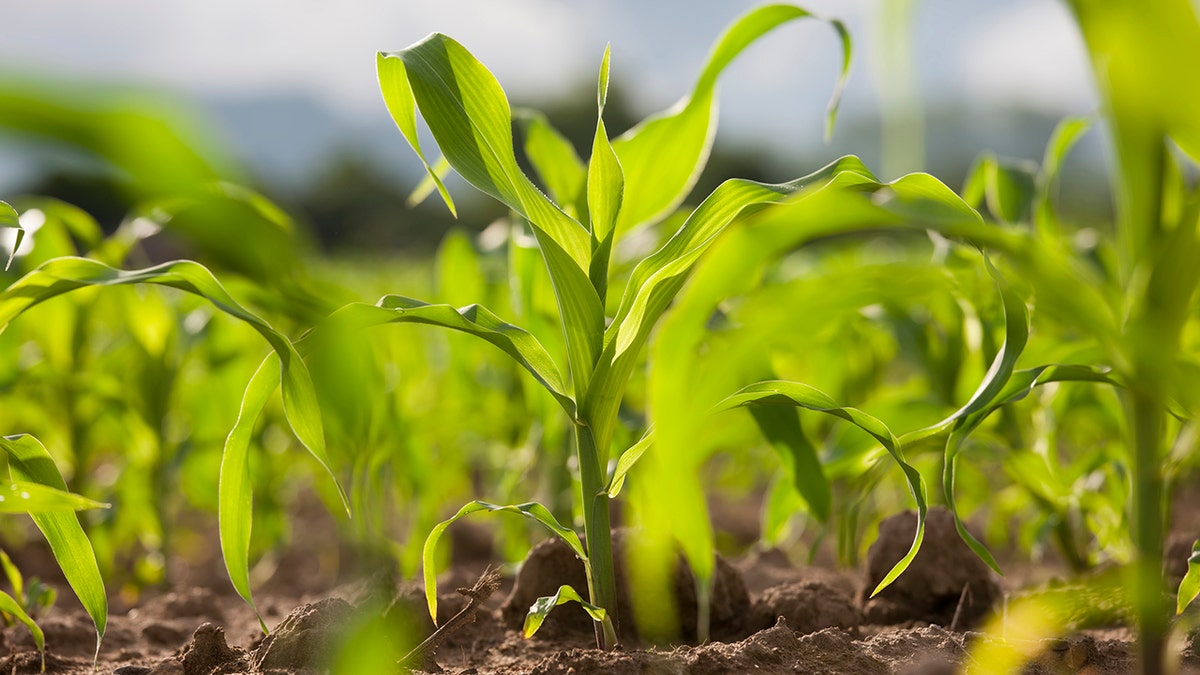
Sprouted grains are whole grains that have begun to germinate, so they've started the process of sprouting but are not full-grown plants. (iStock)
"This process is initiated by soaking the grains in water until they sprout," said Heckler, a registered dietitian.
The germination process breaks down some of the starch, she added, which makes the nutrients in the grain more accessible and easier to digest.
Are sprouted grains worth seeking out?
If you want more nutritious grain options, sprouting grains are a good option.
COTTAGE CHEESE BAKING HACK BLOWS UP ON TIKTOK: 'BEST IDEA I'VE EVER SEEN'
"Sprouted grains are worth seeking out due to their enhanced nutritional profile, digestibility and added fiber benefits," noted Heckler.
Also, they often contain more vitamins (like B vitamins and vitamin C), minerals, antioxidants and dietary fiber compared to their non-sprouted counterparts.
How to store sprouted grains
Sprouted grain products are often kept in the freezer to preserve their freshness and prevent spoilage.
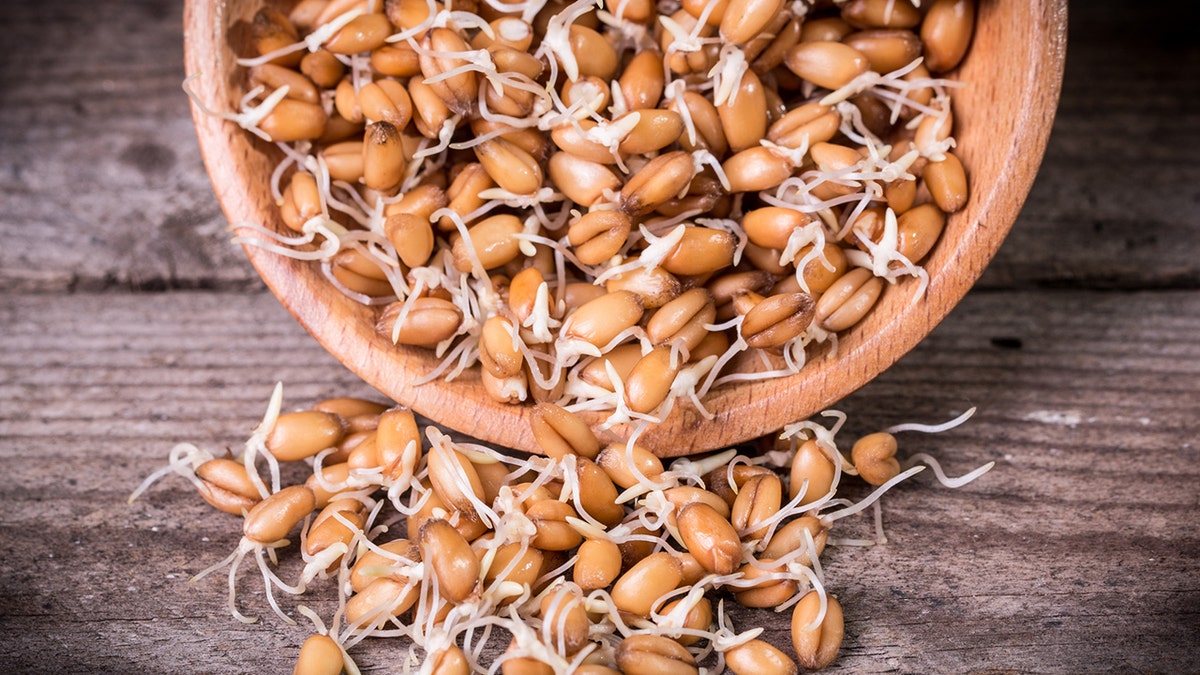
Sprouted wheat grains like these are typically kept in the freezer. (iStock)
"Since they contain more moisture than traditional grains, they are more susceptible to mold and bacteria growth if left at room temperature for extended periods," Heckler said.
GUACAMOLE VS. HUMMUS: IS ONE 'BETTER' FOR YOU THAN THE OTHER?
Also, freezing sprouted grains helps extend their shelf life without the need for preservatives.
Why are sprouted grains healthier than traditional bread?
Here are three nutritional wins, according to Heckler.
Nutrient density. Sprouting increases the availability of nutrients, making sprouted grains richer in vitamins, minerals and antioxidants.
YOUR BEST FOOD AND DRINK CHOICES AT THE AIRPORT, ACCORDING TO DIETITIANS AND NUTRITIONISTS
Digestibility. The germination process breaks down some starches and proteins, making sprouted grains easier to digest. This can be particularly beneficial for those with sensitive digestive systems.
Glycemic index. Sprouted grains tend to have a lower glycemic index, meaning they have a less dramatic impact on blood sugar levels, which is advantageous for managing diabetes.
How are sprouted grains a fit for specific diets?
Low-carb diet. Sprouted grains still contain carbohydrates, but they often have a lower glycemic index than traditional grains, making them a better option for those managing blood sugar levels, Heckler said.
Low-gluten diet. Sprouting can reduce gluten content slightly, she noted, but sprouted grains are not suitable for those with celiac disease or severe gluten sensitivity.
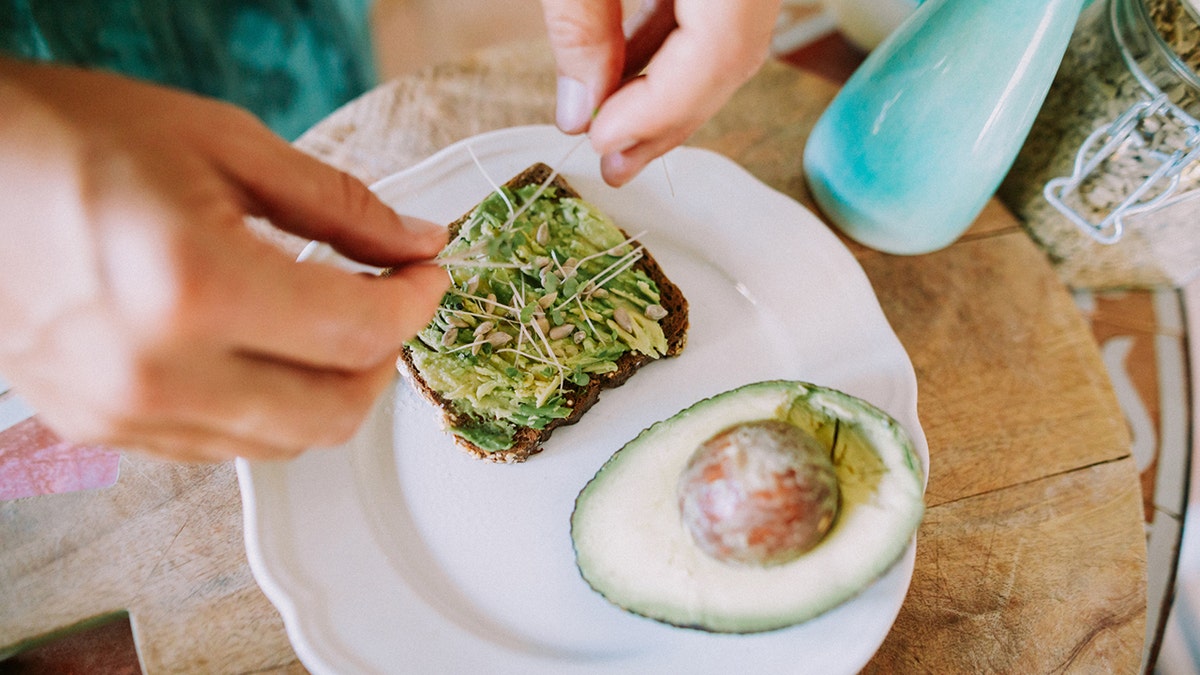
Sprouted grains, seen here on avocado toast, are richer in vitamins, minerals and antioxidants, according to nutritionists. (iStock)
Diabetic diet. The lower glycemic index of sprouted grains makes them a suitable choice for diabetic diets, said Heckler.
Low-fat diet. Sprouted grains naturally fit into a low-fat diet, as they do not contain added fats, she said.
Some drawbacks to consider
Although there are benefits to sprouted grains, there are also drawbacks.
Heckler summarized why some people prefer to skip sprouted grains.
Cost. Sprouted grain products are generally more expensive than traditional grain products because of additional processing involved.
LIVER, INSECTS, SARDINES — OH MY!: 8 'GROSS' FOODS THAT NUTRITIONISTS SAY YOU SHOULD EAT
Shelf life. They have a shorter shelf life and often need to be kept in the freezer to stay fresh.
Foodborne illness. Sprouted grains can pose a higher risk of foodborne illness compared to non-sprouted grains. "The sprouting process requires warm, moist conditions, which are also ideal for the growth of harmful bacteria such as E. coli and salmonella," said Heckler.
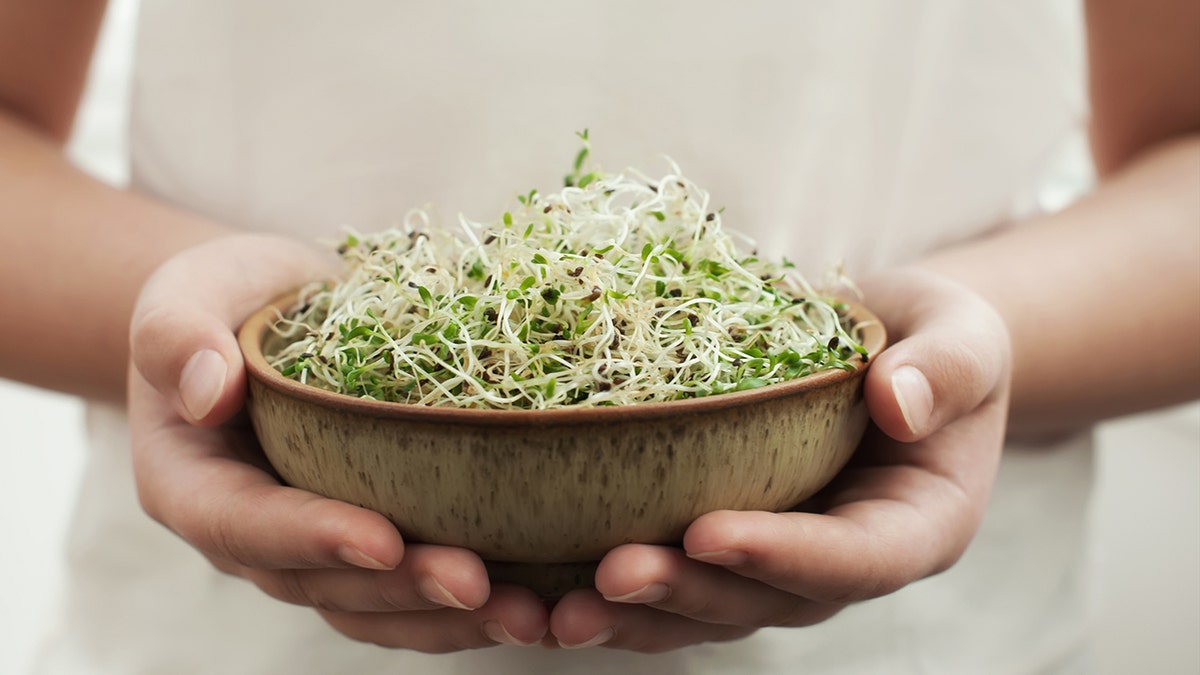
Sprouted grains pose a higher risk of foodborne illness, including E. coli and salmonella, said experts. (iStock)
What are some products made of sprouted grains?
In grocery stores, you can find a variety of products made from sprouted grains, including the following:
- Bread
- Tortillas
- Bagels
- Pasta
- Flour
- Cereal
- Crackers
Should you replace traditional bread with spouted grains?
If you're looking to enhance your diet with more nutrient-dense options and don't mind the higher cost and storage requirements, sprouted-grain bread can be a great replacement for traditional bread.
CLICK HERE TO SIGN UP FOR OUR LIFESTYLE NEWSLETTER
However, it's essential to consider personal dietary needs and preferences.
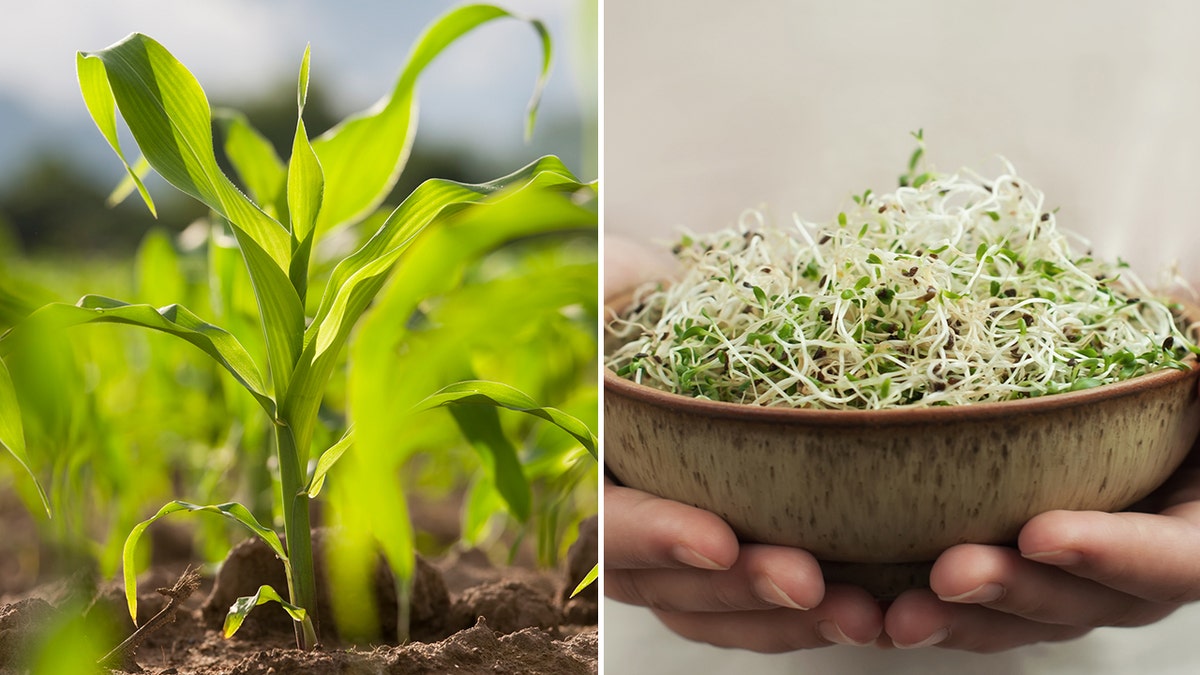
Sprouts, which are not yet fully grown and can be served in a bowl, cost more and must be carefully stored, but they are also more nutrient-dense. (iStock)
Additionally, Lisa Valente, a Healthline nutrition expert based in Burlington, Vermont, said when deciding on what to purchase, it's prudent to read labels carefully.
For more Lifestyle articles, visit www.foxnews/lifestyle
"I think people should look at the bread they buy and make sure it has whole grain listed in the ingredients, preferably the first one, that it has some fiber, and isn't too high in added sugar," Valente told Fox News Digital.
"Many whole grain breads add sugar to mask the taste."
CLICK HERE TO GET THE FOX NEWS APP
So, while it's important to compare labels and find bread that you enjoy that hits some key nutritional targets, Valente cautioned that sprouted grain bread won't be for everyone.
"It might be a product that is nice to try, or you might love it," she added. "I personally love sprouted grain toast for breakfast, but don't love the texture for lunch sandwiches."










































